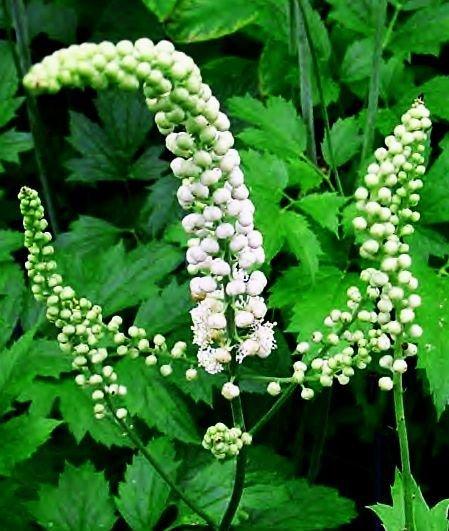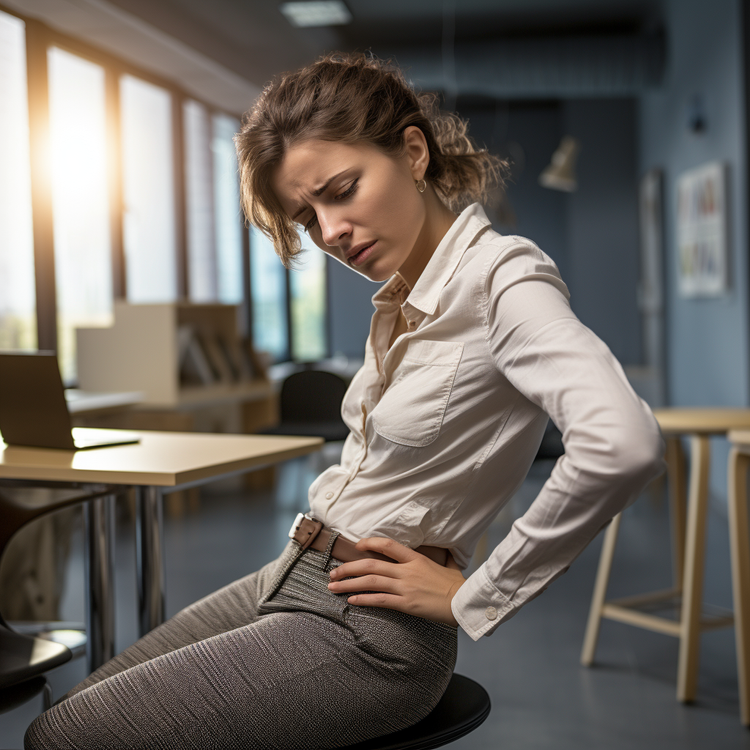How Effective are Herbal Remedies?

Walk into your local pharmacy. You'll see more space devoted to herbal remedies and supplements than actual medicine.
But wait, "actual" medicine? What do you mean? I can already hear some thinking, "But herbal remedies are just as good as the junk Big Pharma is pushing, right? I can cure myself using what nature provides!"
This article will consider the medical efficacy of some of the more popular herbal remedies: echinacea, ginkgo, St johns wort, black cohash, saw palmetto, glucosamine, and chondroitin as well as the supplement industry as a whole. Hopefully, after reading this, you'll have a good understanding of how effective herbal remedies are.
Herbal remedies cannot be completely dismissed out of hand. Like antibiotics are derived from fungi and bacteria, many medicines were initially derived from herbs.
Looking back in history, we see numerous cases where an herbal remedy was studied, and the active ingredients were isolated. Willow bark extract is refined to make aspirin. Cinchona bark extract was purified to create quinine, an anti-malarial drug. This means that there is no blanket statement to be made on the efficacy of herbs.
Each herb must be reviewed on its own merits, with some being worthy of consideration.
However, studies are extremely expensive, and most plants will not have proven efficacy. One study cited in this article cost 12 million dollars. That's a lot of money to lay on the line to prove if a particular flower does anything.
Herbal companies do not have to prove medical efficacy, so they avoid all of the expensive clinical steps to push a product out the door.
Natural products vary greatly in the volume of active ingredients that they contain. They vary from year to year and batch to batch. Consider it in the same way as vintages of wines having markedly different qualities. Soil content, humidity, pest/herbicides, location, and many other factors play into what a given plant goes through from season to season.
Since herbal supplement manufacturers are not held to the same standards as manufacturers producing medicine, you do not know what you will be getting from each given bottle and each given manufacturer. Rather than 75mg of acetylsalicylic acid being in every tablet in every bottle, you get some amount of crushed flower that may or may not contain the same active ingredients as the next bottle in the row. You may not even be getting any active ingredients at all.
In a related case, the Infectious Diseases Society of America study showed that probiotic supplements, cousin to the herbal supplement industry, sometimes contain inactivated ingredients. Rather than a live organism, a dead organism was sold. What do you think the unregulated herbal supplement industry is doing?
Speaking of lack of regulation...
Since there is no standardization process, there is often contamination present. Many studies have found contamination from belladonna, staph, salmonella, aflatoxins, pesticides, insecticides, fumigation byproducts, and toxic metals such as arsenic and cadmium. Surprisingly, actual medicine has been found in herbal supplements. Some herbal supplement manufacturers will include actual painkillers in their supplement pills to give actual relief.
Remember: there is no required quality assurance check for herbal medications since the FDA does not govern them. There is no requirement for safety or proven efficacy. That's why the disclaimer on the bottle says that the FDA has not evaluated this product to treat or prevent any disease or injury.
Now that we've discussed the industry let's look at some case studies. First up is a previously discussed herb called echinacea.
Echinacea is used in almost all combination herbal remedies. Nearly all modern studies have shown it to have absolutely no medical efficacy. A recent study used alfalfa as a placebo against preparations of echinacea. Surprisingly (not really), echinacea was shown to have no difference in symptom reduction compared to the placebo. Unsurprisingly, the naturopaths disagreed. Naturopaths complained that the preparation was not prepared correctly. This is the often-cited reason that other similar sham-medical treatments failed. Some go so far as to say you must wear a certain type of leather glove. Some talk about the phases of the moon.
Regardless, it's all bunk. My favorite reason given by naturopaths that echinacea was shown to have no benefit over placebo was that the placebo was a useful treatment too. The irony of that statement was likely lost on the naturopath that said it. Regardless, the study was repeated with the complaints addressed. There was even the use of direct application of illnesses via mist spray to ensure the test group was infected. The results were the same.
The running theme here is that rather than isolating the valuable chemicals from the herb, studying its impact on animals, then synthesizing a concentrated dose for use in clinical studies, herbal remedies are generally just a mashup of flowers to give a random dose of random chemicals with little in the way of research performed. After all, we'd call it medicine if it was proven to work.
Next up is everyone's favorite: ginkgo. This little herb is often recommended for improving memory. I forgot how that's supposed to work. Heh. Oh, wait, the supposed mechanism for action is by increasing blood flow to the brain.
This concept first came about in the 1960s. Certain studies have shown statistically significant results from animal studies. However, use in humans has yet to demonstrate any results. A study published in JAMA showed that over six weeks, ginkgo was no better than a placebo in improving the memory of elderly patients. Another study in Alzheimer's patients demonstrated enough difference between the test group and the placebo group that there may be some improvement. However, the results were ultimately inconclusive.
Some would say that since ginkgo has been used in traditional Chinese medicine for thousands of years, there must be some validity to the idea that it is useful. That's what we like to call an "Appeal to the Ancients" fallacy. The ancients had little in the way of virology, immunology, physiology, and only a basic idea of anatomy. There was little idea of how diseases worked beyond the last few hundred years. The ancients had nothing that could be called knowledge of epidemiology.
There was also no true way to verify the efficacy of anything used as medicine since until around the 11th century, there was no scientific method. Until that point, introspection and metaphysical debate were largely used in place of true science. Some could argue that Aristotle's empiricism formed a primitive scientific method; however, the lack of causal determination makes that argument largely invalid (and irrelevant to the central question of herbal remedies!).
Let's look at another herb: St Johns Wort.
If anyone was wondering, "wort" is the archaic term for "herb." This plant is named for the red resin secreted by glands in the flower. What do the herbalists claim that it can do? We see this sometimes used as an antidepressant, anti-inflammatory agent, and sometimes as an antibiotic in ancient times. Many studies focus on the antidepressant aspects claimed by herbalism practitioners. Some early small-scale studies have shown some minor benefits to those suffering from mild depression.
However, the same studies showed that it was inferior to a placebo in treating severe depression. One confounding factor is that mild depression is heavily reliant on self-reporting and, as such, suffers from having subjective results. Another confounding factor in studies is that different studies use different extracts so there is little way to determine that a particular active ingredient is performing a medically useful intervention. As a result, it is impossible to dismiss this herb out of hand. Some extracts may be useful when concentrated; however, it is required in concentrations not seen in typical herbal preparations. Another problem is that this herb is not without risks. Side effects and drug interactions can be severe in some patients.
Saw palmetto is an herb that is often recommended for treating what a doctor would call benign prostate hyperplasia. This is where the prostate gland becomes enlarged, resulting in a decrease in urine flow. Saw palmetto is also advocated by herbalists for treating the atrophy of testes, infertility, and decrease in female lactation, as an appetite stimulant, as a toxin expectorant, and treating impotence and erectile disorder.
After the 1960s, there also was a rise in the belief that it could improve general prostate function. The purported mechanism it does all these things by is through interfering with the synthesis of testosterone and/or blocking testosterone receptors. There was a large study published in the New England Journal of Medicine that showed no biological changes shown when compared with a placebo. This study primarily examined deterministic factors like urine flow rate, volume, and prostate size. There was no visible change between the test group and the control group. However, there was a noted report that people felt they were improving despite all signs to the contrary. This is a good example of why subjective measurements should be taken with a grain (if not more) of salt.

Glucosamine and chondroitin were believed to improve joints and decrease osteoarthritis since they are present in joints. However, your body synthesizes the materials that it needs from primitive precursors rather than isolating the materials directly from the things you eat. Just because you're eating a source of chondroitin doesn't mean that your body will recognize it and deliver it whole to your joints.
Rather, your body will break it down and reassemble what it needs from what you've eaten. So far, studies of these two supplements have shown questionable (if zero) benefits. These studies were sponsored by Big Supplement (the manufacturers), and even then, the results still did not support the sponsor's hopes.
The New England Journal of Medicine study conducted showed that a meta-analysis of these studies had "questions regarding the scientific qualities of the studies," which means that the study was bunk from the beginning. Overall, there is no benefit in clinical studies. Some studies have shown better responses from placebo rather than glucosamine/chondroitin preparation. However, in fairness, other subgroups showed a more significant response to the glucosamine/chondroitin preparation. If I were a better badger, I'd wager that this is natural statistical variation. One could argue that more studies are needed, but studies are pretty expensive.
Let's talk about one more herb.
Black cohosh. There's a belief that this treats kidney problems, rheumatism, backaches, malaise, menopause, hot flashes, and probably a few other things. How does it work? Who knows! Some say it interacts with opiate receptors to cause intervention, but that hasn't been proven yet. A clinical trial for menopause-related complications was conducted, which compared black cohosh to a multi-botanical containing black cohosh and nine other ingredients. There was also a placebo group and a group getting the medically accepted hormone treatment method. The only actual medical efficacy found was in the hormone treatment. Naturally, the naturopaths came out to cry foul because "the trials did not simulate the whole person approach," which means the clinicians did not supplement medicine with not-medicine.
Coming back around to a conclusion...
At this point, it's safe to say that most herbal supplements you see in the drugstore should be avoided. There's no quality control to ensure that what you're buying is what you're getting. Even if you get what you think you're getting, you're probably not getting anything that will do anything.





Member discussion